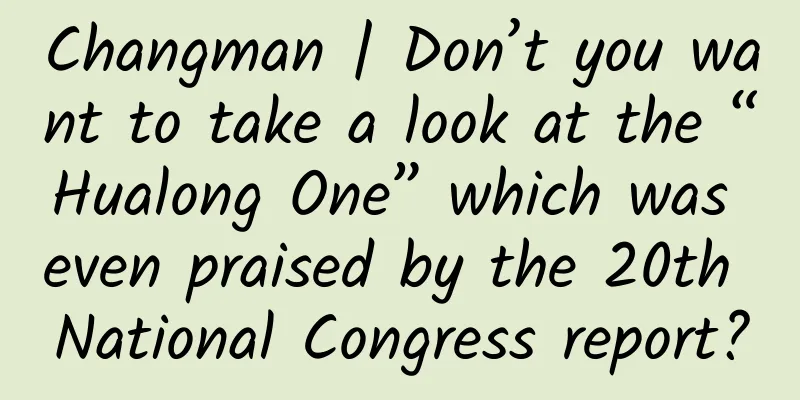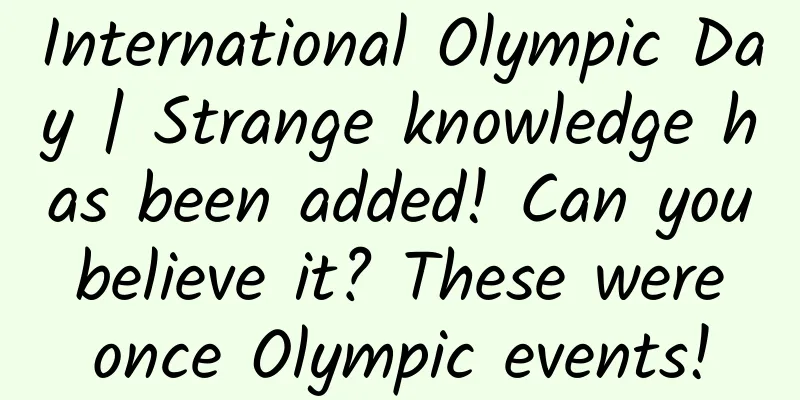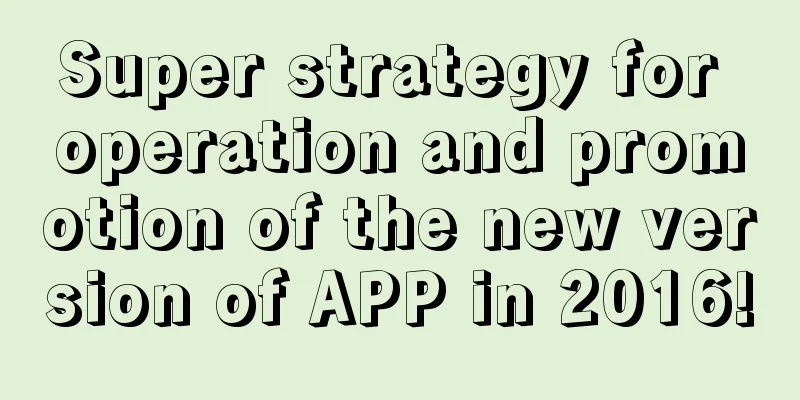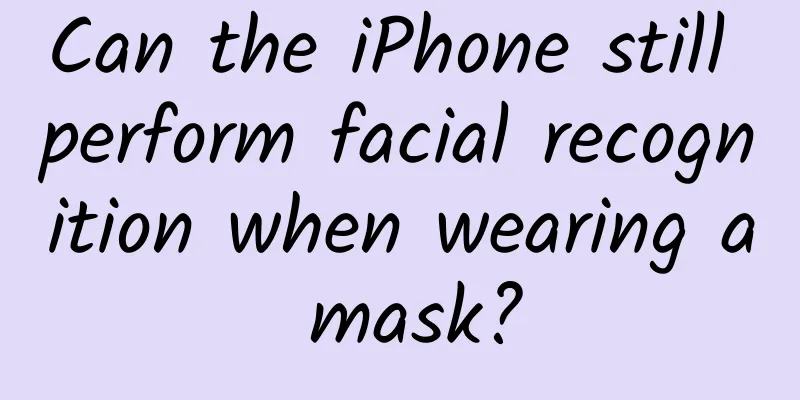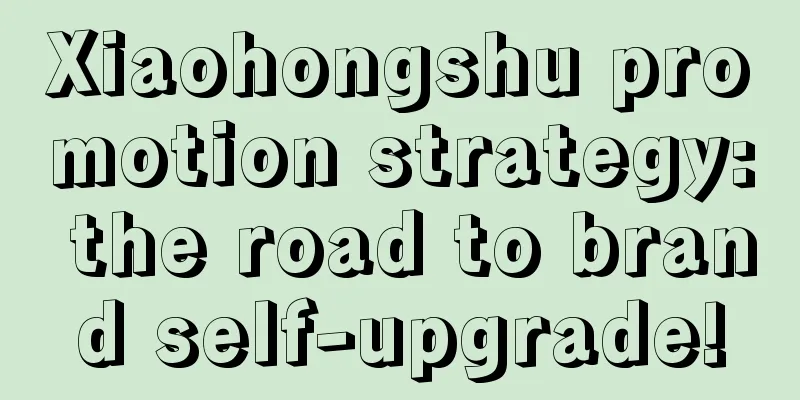Payment + instant messaging, 41-year-old David Marcus shoulders the future of Facebook
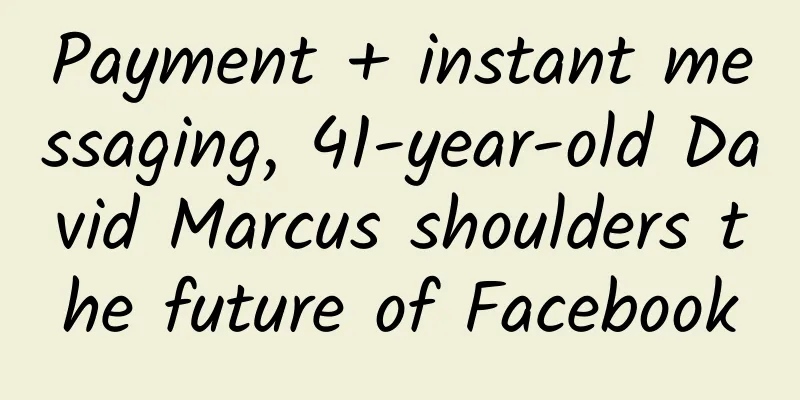
|
Editor's note: In June this year, Facebook brought in former PayPal CEO David Marcus to lead the Messenger project. What is the relationship between the IM product that Zuckerberg believes is closely related to the way people interact in the future and this person who has worked in payment? Let me tell you a fact. Marcus, who actually knows a lot about payment, also has more than 20 years of experience in the VoIP industry...... One evening last May, Mark Zuckerberg invited David Marcus to dinner. This was not the first time that the French PayPal CEO had come to Zuckerberg's house for dinner. This time, before he could even taste the salmon in front of him, Zuckerberg began lobbying. He described to Marcus that social networks would become extremely important in the future, and that instant messaging would play an important role in this revolution. Finally, Zuckerberg said: Come and be in charge of Facebook Messenger. He gave Marcus a tough job. It's no exaggeration to say that Facebook's future depends on its instant messaging app. In a recent public Q&A, Zuckerberg pointed out that "one of the most common things people do besides hanging out on social networks is instant messaging." Whoever controls communication can determine how we interact with others, or, most likely, how we do business. The trouble is, Facebook was behind in this important race from the start. Because Zuckerberg was slow to nail down a mobile strategy, Facebook's messaging capabilities were eclipsed by smaller, more beautiful apps like Snapchat, Viber and WhatsApp, which quickly became popular and let people text, talk and share pictures and videos through their phone books. Controlling IM means controlling the way people interact in the future To compete, Apple and Google redesigned the text messaging tools in their mobile operating systems to make them more like Snapchat and Viber. Facebook, however, didn’t have a mobile operating system, so it relied on users to download the Facebook app. Even so, the messaging feature was buried in the clutter of apps, with an icon the size of a pinhead. Later, Facebook launched a separate Messenger app, but few people downloaded it. So in February last year, Facebook acquired the fastest-growing app WhatsApp for $19 billion. Many people thought that this was tantamount to admitting the failure of Messenger. However, in fact, there is not much overlap between the functions of Messenger and WhatsApp. Most of WhatsApp's 450 million users are from overseas, and using this app can help them save expensive phone bills. That’s why Zuckerberg invited Marcus to dinner. Marcus, 41, is a serial entrepreneur who sold a payment startup to eBay’s PayPal in 2011, and soon became PayPal’s CEO. This is what attracted Zuckerberg. Instagram’s success also proved that Facebook can buy a startup and grow it. Startups can benefit from Facebook’s scale resources—legal and infrastructure, as well as spam blocking systems. Similarly, Zuckerberg intends to cultivate Messenger as a startup within Facebook, with leaders retaining full control over the product. Marcus, who has entrepreneurial skills, big company technology, and payment backend experience, is the best candidate for this position. Marcus agreed to consider it. The next day, Zuckerberg sent him a long email explaining his career ideals. The two met several times later. After that, Marcus left his CEO position managing 15,000 people and came to a small department in Facebook, managing less than 100 people. He can see what analysts can't: numbers. After a series of improvements in recent months, Facebook Messenger has seen a sharp increase in installations. On Tuesday, Marcus made his first appearance as a Facebooker at Techonomy in San Francisco, announcing that Messenger now has 500 million monthly active users, a 150% jump from a year ago. "Our goal is a billion users," Marcus said. But this is only part of his vision. His ultimate goal is to make Messenger into something far more than just a messenger. More than just communication? Marcus and his colleague Peter Martinazzi were meeting that day with a team working on VOIP technology, which is the technology that allows you to make calls using Messenger. In the future, Messenger will also involve online payments. VOIP is familiar territory for Marcus, who has over two decades of experience with Internet telephony platforms. He has been working with telephony since before we could even imagine sending text messages. At the age of 23, he founded a telecom operator called GTN Telecom, which provided local and long-distance calls as well as Internet access. Four years later, he sold it to competitor World Access. In addition, Marcus is also very knowledgeable about payment, which Zuckerberg said is a direction that instant messaging will inevitably involve in the future. In 2000, Marcus founded the B2B mobile payment service Echovox. His next mobile payment company Zong was initially operated as a branch of Echovox. In its heyday, Zong had access to 3.2 billion mobile phone users, and later attracted attention for cooperating with Facebook to sell the social network's virtual currency. In 2011, PayPal acquired Zong and Marcus became vice president. In January 2012, Scott Thompson, then president of PayPal, left PayPal to join Yahoo, and Marcus became CEO of PayPal. Many people saw his arrival as a sign that PayPal was more aggressive. Under his leadership, PayPal launched the offline card reader PayPal Here. However, Marcus felt that it was not fun to manage so many people. He said, "You are not doing anything creative. Most of the time you are tinkering instead of creating new things." Marcus announced his new role on Facebook on June 9, then drove from PayPal's San Jose headquarters to Menlo Park for an all-hands meeting on the Messenger team. 500 million users is actually a long road This is the history of Messenger from scratch. You can trace its origins back to 2011, when Facebook spent $40 million to poach the three founding members of Beluga, a group messaging service, and the prototype of Messenger was born. Facebook launched Messenger for iOS and Android in late 2011. However, eighteen months after launch, only 10-20% of Facebook's active users had downloaded Messenger. At this time, Facebook Growth Team Javier Olivan stepped in. He was responsible for overseas user development. The growth team is equivalent to Facebook's Navy SEALs. When a feature has great potential for success but is also very costly, Olivan's team will intervene to investigate. “We found that people were engaging differently when messaging in standalone Messenger than when messaging in the Facebook app,” Olivan explained. In other words, people were messaging more when they used Messenger. Olivan had to find a way to incentivize more people to install the app. Finally, he moved the Messenger engineering team (at the time, there were 10 people working on iOS and 10 working on Android) under Facebook's director of project management, Peter Martinazzi, and the entire team completely revamped Messenger and "borrowed" the most popular features from competitors. After the transformation, users can sync their mobile phone contacts and send messages to anyone, including users who are not on Facebook. They also added a "Like" button and group chat function. Users can use the microphone at the bottom of the page to record and send sounds. In addition, users can also click the phone icon in the upper right corner to make Internet calls directly through the App. The Messenger team also did a lot of work behind the scenes. Initially, Messenger used the same code that managed messaging in the Facebook app. "Later, we completely changed the way the server and client talk to each other," Martinazzi said. "Now the app uses less data and messages arrive faster, which is very important for users with limited data." However, despite these improvements, many die-hard Facebook users still refuse to download Messenger. They have other communication tools on their phones, and if they have to check messages, they will go to the Facebook client. In April, Facebook planned to "forcefully remove" the SMS function of its mobile client and urged users to download the independent Messenger application. Otherwise, would you try it? It first tried it in a few European countries where Messenger was popular. The results were good, so Facebook decided to make everyone install this standalone communication app. Then, there was a user backlash. David Marcus was not involved in the Facebook split, but he believes it is important. "People don't download apps very often now, and if you don't force them to install it, people won't even try Messenger." The move has angered many people. Facebook was rolling out the plan in North America a week before Marcus officially joined Facebook, and people complained. Privacy activists complained that people had to set up new apps again, and the default settings were privacy-related. People started spreading rumors that Facebook would ask for permission to keep your camera on to spy on you, and an old Huffington Post article was brought back to people's attention, saying that the permissions requested by the Android version of Messenger were outrageous. Facebook was quite aggressive in its early days when it came to user privacy, which earned it a reputation as a privacy violator. But as Facebook matured, it began giving users the power to choose what permissions to grant. But once you have a bad reputation, it's hard to get rid of it. The Huffington Post mentioned that the permissions Facebook requested were not more demanding or less common than those required by similar communication apps. But user complaints also show that people do use this product. In less than half a year, the number of users of Facebook Messenger has doubled. Once users find that Messenger can do so many things, they will use it frequently. This is Facebook's lifeline. Gartner analyst Brian Blau believes that if Facebook wants to become stronger, it needs to import more users and let them spend time on it and leave data. "The only way to do this is to keep users online and hanging on Facebook." Blau explained. Users are emotional... Of course, some users will still not buy it. For example, my sister-in-law wrote on Facebook: "I just hate Messenger. In my opinion, the integrated app is much more efficient." But in Marcus's opinion, "It's hard to express complex emotions through text alone, so we hope to give people a tool to help them express themselves better." Then, Marcus took out his phone and showed me a feature he was developing. He sent a message to Martinazzi, and a small blue dot appeared on Marcus's screen, indicating that Martinazzi had received the message. When Martinazzi clicked on the message, the small blue dot on Marcus' phone turned into Martinazzi's chat avatar. You ask me what's the benefit? Well, you can see at a glance whether the other party has received the message and whether they have clicked on the message. Marcus said, "We will do more features like this in the future." If people's communication will become smoother because of Messenger, people like my sister-in-law will eventually download this app. The business model still depends on payment So far, the Messenger team is not aiming to make money, but it is easy to make money. At Facebook's second quarter earnings conference, Zuckerberg said that Messenger and payment will overlap in the future. Internal screenshots obtained by a technology blog also show that Facebook is testing the payment function between friends. This is not the only way Facebook makes money. When Despicable Me 2 was released last year, Facebook launched the Minion sticker download function. It is not difficult to imagine that Facebook can make money from stickers in the future. Marcus has a bigger goal. In the early days of Facebook, Zuckerberg put forward his ambitious idea to replace banner ads with ads that are more like "content" in the future. Similarly, Marcus also hopes to reshape the current information communication between people and businesses. I agree with him. After all, who doesn't hate spam? |
<<: Office for iOS: A slap in the face for Windows Phone users
>>: Providing cross-platform technical cooperation Microsoft China strongly supports Cocos Engine
Recommend
Yangzhou SEO Training: Website Construction: What functions should a corporate website have?
What functions should a corporate website have? A...
Black workers: 90s bees cloned into a million-strong army, almost subverting the South African beekeeping industry
More, more, more. Written by | Krestrel Honey bee...
Understanding the current status and cutting-edge technologies of cloud databases in one article
"Everything will run in the cloud." Now...
All-solid-state batteries are safer and have higher energy density, but American academicians believe that they will not be available before 2030
Recently, Wang Chaoyang, a member of the U.S. Nat...
Blog promotion methods, sharing 5 methods!
What are the methods of blog promotion ? What are...
It was invented by accident only a hundred years ago.
The story begins in the late 19th century in the ...
OpenSignal: 4G penetration in Singapore is close to 90%
OpenSignal analyzed the penetration of 4G in Sing...
Methodology in the Internet Age: The Boundary between Corporate Dictatorship and Democracy
In the tide of the Internet, will enterprises bec...
Linxia SEO Training: What are the common problems in SEO optimization? How do optimizers solve them?
In the process of SEO optimization of the website...
How to use new media to promote products
Before explaining new media operations, let’s fir...
Moon: Earthlings, I live much longer than you think!
In the imagination of ancient people Chang'e ...
How should brands operate Bilibili in 2021?
The new year of 2021 is here. Recently, when I wa...
Advanced live broadcast room operation, save it now!
1. Live broadcast content planning Some students ...
Analysis of the current status of the video material market and advertising strategies!
Everyone is familiar with advertisements. There a...

